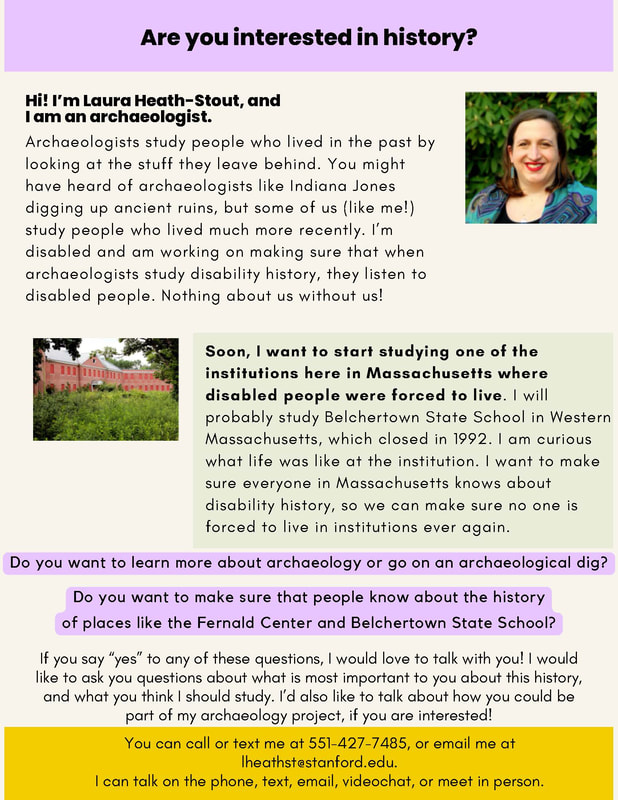Archaeology and Disability
My next major project is a community-based investigation of the history of the Massachusetts state institutions for people with intellectual and developmental disabilities. This project will bring together several threads:
- Disability Studies and Archaeology: Despite disabled activists' insistence on "Nothing About Us Without Us," archaeologists regularly interpret past disabled people's lives without any engagement with disabled people or disability studies in the present. In this project, I will draw on disability studies literature as well as the experience and expertise of my disabled collaborators (and my own!) in order to gain a more holistic understanding of disabled lives in the past.
- Broadening Collaborative Archaeology: Although archaeologists often collaborate with descendant communities, our understanding of who those stakeholder communities are is often limited. Using Jenn Lupu's idea of "ethical stakeholders" ("those that are directly implicated in topics and categories of each particular research project"), I argue that whether or not a disabled person has experienced institutionalization or is lineally descended from someone who did, we are implicated in the histories and futures of sites of institutionalization. Therefore, just as indigenous archaeology should be done in collaboration with indigenous people in the present, archaeology of disability should be done in collaboration with disabled people in the present.
- Building a More Accessible Archaeology: As my own research (along with many other advocates' work!) has shown, archaeology as a discipline is often hostile to disabled practitioners and students. This project will be a universally designed public archaeology project, in which disabled archaeologists, students, and community members are actively welcomed and supported. We'll share what we learn about accessibility in archaeology in order to help archaeologists be more inclusive!

